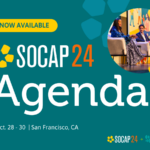 Innovation abounds in the social capital market. The number of one-off proof of concept projects is increasing geometrically. On the other hand, the number of groundbreaking pilots that triple in size, and shift from asking for grants to offering a financial return within three years, can be counted on one hand. Grassroots Business Fund is in that select group.
Innovation abounds in the social capital market. The number of one-off proof of concept projects is increasing geometrically. On the other hand, the number of groundbreaking pilots that triple in size, and shift from asking for grants to offering a financial return within three years, can be counted on one hand. Grassroots Business Fund is in that select group.
After raising $21 million two and a half years ago, Harold Rosen is feeling confident about Grassroots Business Fund’s (GBF) ability to raise a follow-on $60 million for-profit fund focused on small and growing businesses in the developing world by the end of June. Also on his plate is raising another $40 million in non-profit technical assistance and around $6 million in first loss capital.
Rosen has soft circled the $60 million, mostly from development agencies and large foundations, but doesn’t plan to close the fund without at least half of the TA dollars committed. “We’re saying to every investor that we encourage them to contribute or at least help arrange the non-profit side,” said Rosen, “but we won’t force them to do it.” He’s projecting a financial return of between seven and 10 percent, net of losses and fees, based on GBF’s investment experience so far.
Rosen spun GBF out of the International Finance Corporation (IFC) in 2008, after launching it inside the multilateral development finance agency four years before. Fifteen million dollars of the first fund came from the IFC with the rest coming from Omidyar Network and some foundations, individuals and government agencies. The money came to GBF as grants and much of it was invested in a mix of equity, quasi-equity, and debt in some 28 enterprises in Latin America, Africa, India, and Southeast Asia.
Becoming a winner in last fall’s G-20 SME (small and medium enterprise) Finance Challenge makes Rosen more confident of getting the first loss capital, and the overall funding together. In that competition, the governments of the 20 largest economies pledged $500 million toward SMEs. Other finalists like Root Capital agree that they expect the competition to open doors to new funding.
GBF’s experiments are wide-ranging. In Indonesia, they are working with a group of local angel investors in a promising partnership. GBF also put a lot of money and effort into metrics and building the field of social enterprise, which they hope to expand if they reach the full $40 million non-profit side of their fund raise.
Because of their innovative approach, strong partnership ethic, and track record, GBF will be among the funds telling its story at SOCAP/Europe, May 30 – June 1 in Amsterdam.




